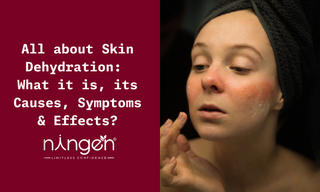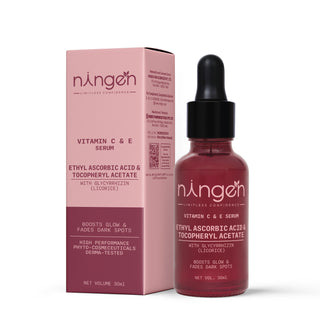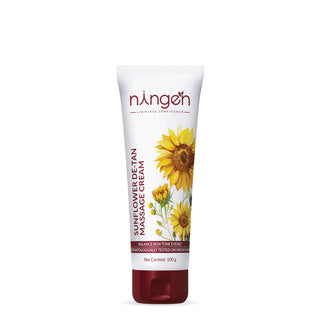Skin dehydration is a common yet often overlooked condition that occurs when the skin loses more moisture than it can retain. Unlike dry skin, which refers to a lack of oil, dehydrated skin is characterized by insufficient water content, making it appear dull, tight, and more prone to irritation. Understanding skin dehydration is essential for maintaining optimal skin health. When skin lacks hydration, it can exacerbate existing skin issues, leading to uneven texture, increased sensitivity, and accelerated aging signs.
Moreover, recognizing the factors contributing to dehydration—such as environmental stressors, lifestyle choices, and inadequate skincare routines—can empower individuals to take proactive steps to restore hydration. By nurturing our skin with appropriate hydration practices, we can enhance its overall appearance, resilience, and vitality, ensuring a radiant and healthy complexion. Knowing how to identify and address skin dehydration is crucial for anyone aiming to improve their skin’s health and longevity.
In This Article;
- What is Skin Dehydration?
- Causes of Skin Dehydration
- Symptoms of Skin Dehydration
- Effects of Skin Dehydration
- How to Hydrate Your Skin
- Preventing Skin Dehydration
- Conclusion
- Quick View:
- FAQs
What is Skin Dehydration
Skin dehydration refers to a condition where the skin loses more moisture than it can retain, resulting in a lack of water content in the outermost layers. This deficiency can lead to dullness, tightness, and increased sensitivity, making the skin more susceptible to environmental stressors. It’s important to note that skin dehydration is different from dry skin. While dry skin is characterized by a deficiency in natural oils, dehydrated skin lacks water, regardless of its oil content.
A person can have oily skin that is dehydrated, demonstrating that hydration is an essential aspect of skin health independent of oiliness. Understanding this distinction is vital for tackling skin concerns effectively. Recognizing the signs of skin dehydration, such as flakiness or a tight feeling, allows for tailored skincare approaches that can restore moisture levels, promoting a healthier, more balanced complexion. Proper hydration is key to maintaining skin resilience and vitality in an ever-changing environment.
Causes of Skin Dehydration
Skin dehydration can occur for various reasons, each leading to reduced moisture levels in the skin. Environmental factors are significant contributors; harsh climates, extreme temperatures, and pollution can deplete the skin of its natural hydration, resulting in a dull and lifeless appearance.
1. Environmental Impact
The environment plays a critical role in skin health. For instance, cold, windy weather can strip moisture away, while hot temperatures can increase sweat loss, both of which can worsen dehydration.
2. Lifestyle Choices
Your lifestyle choices are equally important. Dietary habits significantly affect skin moisture; a diet deficient in essential fatty acids and fluids can worsen dehydration. Moreover, excessive sun exposure can lead to quicker moisture loss and skin damage.
3. Skincare Products
The skincare products you use also affect hydration levels. Harsh cleansers and alcohol-based toners can disrupt the skin's natural barrier, leading to increased dryness. Failing to use adequate moisturizers or neglecting hydrating serums can worsen the condition.
4. Medical Conditions
Certain medical conditions, such as eczema and psoriasis, can complicate skin hydration further. These conditions often impair skin barrier function, resulting in increased moisture loss and heightened sensitivity.

By understanding these causes, individuals can adopt targeted strategies to fight skin dehydration. Making informed choices regarding one’s environment, lifestyle, and skincare routine is essential for achieving and maintaining a healthy, well-hydrated complexion.
Also Read: How to Know Your Skin Type?
Symptoms of Skin Dehydration
Recognizing the symptoms of skin dehydration is essential for effective treatment. Common signs include a feeling of tightness or discomfort on the skin’s surface, often exacerbated after cleansing or exposure to harsh environmental conditions. You may also notice flakiness, particularly in dry patches, which can lead to rough texture.
Visually, dehydrated skin may appear dull and lifeless, lacking the natural, radiant glow associated with well-hydrated skin. Fine lines and wrinkles can become more pronounced, as dehydration reduces the skin's elasticity. This can make you appear older than you are, which may be especially concerning.
Differentiating between the symptoms of skin dehydration and other skin issues is crucial for proper care. For instance, if your skin feels tight and looks dull after using alcohol-based products, it’s likely dehydration rather than an allergic reaction. Acne, on the other hand, might also create a feeling of tightness but is often accompanied by redness and inflammation.
To summarize, being aware of these symptoms and understanding their nuances can help you address skin dehydration effectively, ensuring your skin remains healthy, hydrated, and youthful.
Effects of Skin Dehydration
Skin dehydration can lead to a variety of short-term and long-term effects on both physical appearance and overall health.
Short-term Effects
In the short term, dehydrated skin often presents with discomfort and irritation. Individuals may experience a tight feeling, which can be exacerbated after cleansing or exposure to harsh elements. In some cases, this can result in increased sensitivity, redness, and even minor flaking, making the skin feel rough and unappealing.
Long-term Consequences
If left unaddressed, skin dehydration can lead to more serious long-term consequences. A compromised skin barrier can result in moisture loss and increased vulnerability to environmental aggressors. Additionally, chronic dehydration can contribute to premature aging, as fine lines and wrinkles become more pronounced and the skin loses its natural elasticity.
Psychological Effects
Beyond physical implications, skin dehydration can take a toll on one’s self-esteem. The visible signs of dehydration—such as dullness and uneven texture—can affect how individuals perceive themselves and their overall confidence. This interplay between physical appearance and psychological well-being underscores the importance of maintaining adequate hydration for a healthier complexion and improved self-image.
How to Hydrate Your Skin
Maintaining proper skin hydration is essential for a healthy complexion. An effective skincare routine plays a significant role in addressing skin dehydration. Start by incorporating quality moisturizers that contain hydrating ingredients like hyaluronic acid, glycerin, and ceramides, which help to draw moisture into the skin and form a barrier to prevent water loss. Additionally, consider adding serums enriched with antioxidants and vitamins to boost moisture levels and protect your skin from environmental stresses.
Hydration should also come from within; drinking plenty of water throughout the day is vital for keeping your skin plump and radiant. Aim for a well-balanced diet rich in fruits and vegetables, particularly those high in water content, such as cucumbers and oranges, which can enhance your skin's overall hydration.
When selecting skincare products for dehydrated skin, look for non-comedogenic formulas to avoid clogging pores, and choose products that are free of irritants like alcohol and fragrances. Always tailor your skincare routine to your specific skin type, as this ensures you effectively combat dehydration while promoting a healthy, glowing complexion. By prioritizing both topical and internal hydration, you can achieve vibrant and youthful skin.
Preventing Skin Dehydration
Preventing skin dehydration involves adopting daily habits that promote moisture retention and overall skin health. One of the easiest ways to maintain hydration is to follow a consistent skincare routine. Begin and end each day with a gentle cleanser to remove impurities without stripping natural oils. Follow this with a nourishing moisturizer to lock in hydration, especially after showering or washing your face when the skin is still damp.
Seasonal changes can significantly impact skin hydration, so it’s essential to adjust your skincare regimen accordingly. During colder months, opt for thicker creams and nourishing oils to combat dryness caused by low humidity. Conversely, in warmer months, light, gel-based moisturizers may suffice while you stay hydrated by drinking ample water.
Regular skin assessments are crucial for identifying specific hydration needs. Understanding how your skin responds to different environments and products allows you to make informed decisions. Incorporate occasional exfoliation into your routine, as this helps remove dead skin cells that can hinder moisture absorption.
Additionally, be mindful of environmental factors—such as prolonged sun exposure and air conditioning—which can exacerbate dehydration. Wearing protective clothing and applying broad-spectrum sunscreen regularly can safeguard your skin from the elements. By cultivating these habits and staying attuned to your skin’s requirements, you can effectively prevent dehydration and maintain a healthy, radiant complexion year-round.
Conclusion
In summary, understanding skin dehydration is essential for maintaining healthy and vibrant skin. We explored its causes, from environmental factors to lifestyle choices, and highlighted common symptoms such as tightness and flakiness. The importance of a tailored skincare routine cannot be overstated; using appropriate products and remaining vigilant to your skin's needs will go a long way in preventing dehydration. Remember to stay hydrated internally by drinking plenty of water while adjusting your skincare according to seasonal changes. By prioritizing these strategies, you can effectively combat dehydration and promote a radiant complexion. Invest in your skin health today; a little care and attention can lead to lasting beauty and confidence for years to come.
Quick View:
Skin dehydration is influenced by various factors like environmental conditions and lifestyle choices. Symptoms include tightness and flakiness. To combat dehydration, it's essential to tailor your skincare routine according to your skin's needs and the changing seasons. For colder months, thicker creams and nourishing oils are recommended, while lighter, gel-based moisturizers work well in warmer weather. Regular exfoliation enhances moisture absorption, and protective measures against sun exposure and air conditioning can further safeguard your skin. Staying hydrated internally by drinking adequate water is equally crucial. Prioritizing these strategies can help achieve a healthy, radiant complexion year-round, boosting your confidence and beauty.
FAQs
- What is the difference between dehydrated skin and dry skin?
Dehydrated skin refers to a lack of moisture, while dry skin refers to a deficiency in natural oils. Dehydrated skin can affect any skin type, including oily, while dry skin specifically means the skin is not producing enough oil.
- What are common causes of skin dehydration?
Common causes include environmental factors such as harsh weather and pollution, poor dietary habits, certain skincare products, and underlying medical conditions like eczema or psoriasis.
- How can I tell if my skin is dehydrated?
Symptoms of dehydrated skin include tightness after cleansing, visible dryness or flakiness, a dull appearance, and heightened fine lines. Observing these signs can help you determine if your skin is dehydrated.
- What short-term effects can skin dehydration cause?
In the short term, skin dehydration may lead to discomfort, increased sensitivity, irritation, rough texture, and minor flaking.
- What are the long-term consequences of untreated skin dehydration?
If left unaddressed, chronic skin dehydration can compromise the skin barrier, making it more susceptible to external stressors, and may also accelerate signs of aging, including deeper wrinkles and loss of elasticity.
- How can I hydrate my skin effectively?
To hydrate your skin, use quality moisturizers with hydrating ingredients, consider hydrating serums, maintain good water intake, and select the right non-comedogenic products.
- What preventive measures can I take to avoid skin dehydration?
Prevent skin dehydration by having a consistent skincare routine, adjusting products seasonally, regularly exfoliating, and being mindful of your environment to protect against harsh conditions.
- Can certain foods help with skin dehydration?
Yes, consuming hydrating foods such as fruits and vegetables can support skin hydration, along with maintaining regular water intake.
- Is it possible to reverse skin damage caused by dehydration?
Yes, with the right skincare routine focused on hydration and moisture retention, it is possible to improve and restore the skin's health and appearance over time.
- When should I see a dermatologist about my dehydrated skin?
If you notice persistent symptoms of dehydration despite implementing a proper skincare routine, or if you have underlying skin conditions that worsen, it’s advised to consult a dermatologist for professional evaluation and guidance.











Prashant kalyani
Need a bulk tablets by our brand name.
Anand Maheshwari
I an Anand Maheshwari from Lucknow India.
Please contact me at WhatsApp 6394790743 for some trade enquires.
Thanks !